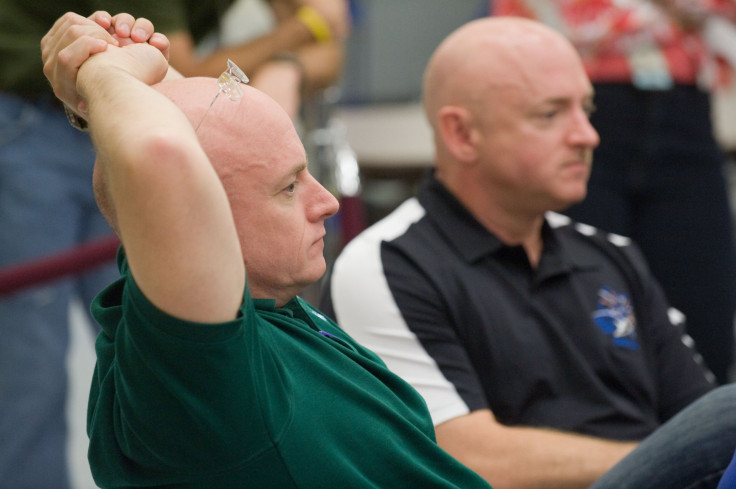NASA’s First Twin Astronaut Study To Help Better Understand Microgravity Effects On Human Body

A pair of identical twin astronauts has come forward to help NASA with an “unprecedented” study, which is expected to provide opportunity for scientists to better understand the effects of microgravity on the human body, the space agency announced on Friday, adding that it had selected 10 investigations for the new research.
As part of the study, NASA has decided to fly veteran astronaut Scott Kelly aboard the International Space Station for one year, beginning March 2015, while his twin brother, retired astronaut Mark Kelly, will remain Earth-bound. According to NASA, the 10 investigations will provide the space agency with deeper insight into the subtle effects and changes that may occur in space as compared to Earth-based environments.
“We realized this is a unique opportunity to perform a class of novel studies because we had one twin flying aboard the International Space Station and one twin on the ground,” Craig Kundrot, deputy chief scientist of NASA’s Human Research Program, or HRP, said in a statement. “We can study two individuals who have the same genetics, but are in different environments for one year.”
NASA said that HRP would fund the 10 short-term investigations -- picked from a pool of 40 proposals -- into the molecular, physiological and psychological effects of spaceflight in a continuous effort to reduce the health impacts of human space exploration.
The study is said to partly focus on the comparison of blood samples collected from Kelly brothers at regular intervals before, during and after the one-year mission. In addition, physiological and psychological testing also will be conducted on them as part of the research.
“These studies will look at the way genes in the cells are turned on and off as a result of spaceflight; and how stressors like radiation, confinement and microgravity prompt changes in the proteins and metabolites gathered in biological samples like blood, saliva, urine and stool,” NASA said in a statement.
The 10 selected proposals, drawn from 10 institutions in seven states, will receive a combined $1.5 million during a three-year period.
Check out the video here:
© Copyright IBTimes 2024. All rights reserved.






















